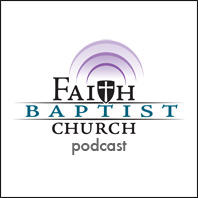Preacher: Jeremy Herbert
Text: Ephesians 2:
Theme: Our Identity In Christ
Notes:
Finding our identity in Christ allows us to relate to others around us in a Christ-like way.
Three Truths:
-
Rooting our identity in Christ releases us from our past
- “…you were dead in trespasses and sins in which you once walked….”
- “…among whom we all once lived….”
- “…even when we were dead in trespasses and sins….”
- Our past reminds us that:
- We can’t earn God’s love
- “I know God loves me–but I don’t think He likes me”
- It can be tempting to think that we can do something to “earn” grace
- “I did these things, so God kind of owes me a good day”
- “This bad thing happened, I must not have done enough to please Him”
- If we think God treats us this way–offering grace provisionally or based on works
(i.e., not grace), we will relate to others in this same way- How can you reflect God’s grace if you don’t feel God is full of grace–
but that He is severe and usually disappointed?
- How can you reflect God’s grace if you don’t feel God is full of grace–
- We can’t earn God’s love
- God loves us, not because we are intrinsically or potentially lovely
- God makes lovely that which He chooses to love, i.e.,
He loves us because of of what He has done, not because of what we have done
- God makes lovely that which He chooses to love, i.e.,
- Growing up in a Christian home you often are protected from committing certain sins that unbelievers harm themselves and others with
- “The big ones”
- But the closer you grow to Christ, the darker you understand your own sins to be–no matter how socially acceptable those sins might be
- God’s desire for us to mourn over our sin is not a call to wallow in shame–it’s a call to accept His offer of grace, repent of our sin, and be made new
- At salvation you have been given the resources to be free from sin
- It doesn’t mean that some sins may take more time and effort than others to be free from
- Sins you are painfully aware of
- Sins you are unaware of
- It doesn’t mean that some sins may take more time and effort than others to be free from
-
Rooting our identity in Christ allows us to rest in His present grace
- The call of legalism is often harsh and unforgiving
- “This bad thing happened, I must not have displeased God.”
- It can also be seductive
- “This good thing happened, I must be really righteous”
- But the truth is that God loves us with a covenantal love–where God loves us because He has promised to love us–based on the merits of Christ–not because of how you have performed.
- Q: Won’t people just feel a license to live as sinful as they want, penalty-free?
- A: People truly saved by grace will be transformed by grace.
- You need not be pulled here and there by the exhausting sins of:
- pride (look what I have done for God)
- despair (look what I have done to God)
- We must remember that God has entered into a covenant with His people:
- By His own initiative
- Utterly aware of every one of our sins
- And God is for us!
- The call of legalism is often harsh and unforgiving
-
Rooting our identity in Christ restores us to purpose
- Graces:
- imago dei (ih-MAH-go DAY) — “the image of God”
- Every human is made in the image of God
- Common grace
- Redemptive grace
- imago dei (ih-MAH-go DAY) — “the image of God”
- Graces:
Podcast: Play in new window | Download



